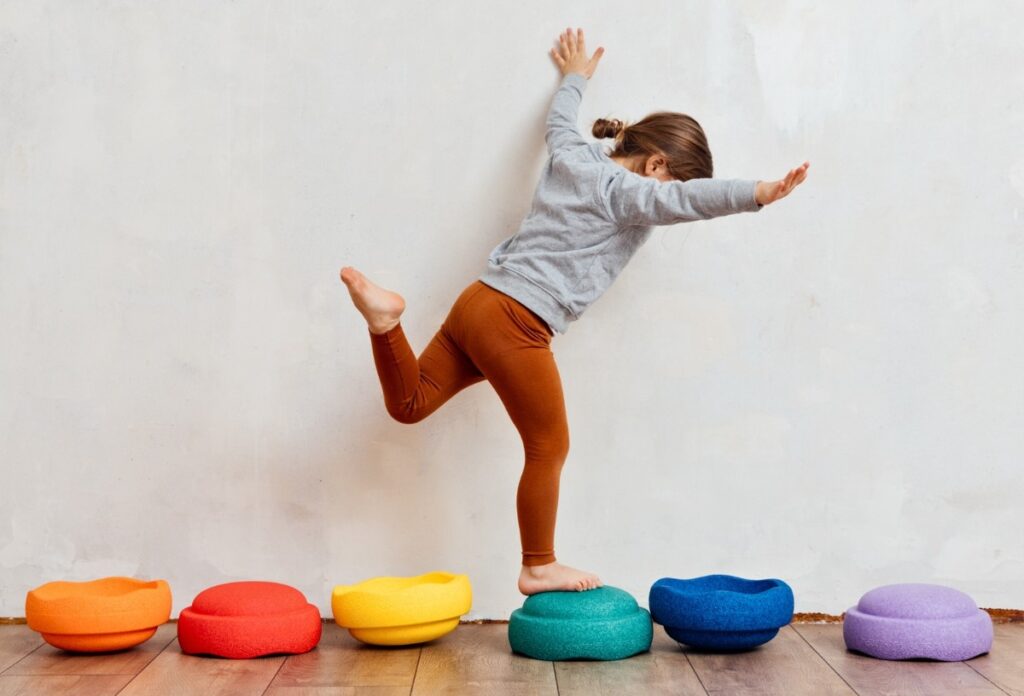Finding Balance: Why It Matters in the Early Years

Picture a toddler wobbling on one foot, arms stretched out wide like an airplane. For us, it looks like a fun little game. For them, it’s serious business! They’re actively building balance, coordination and confidence- one wobbly step at a time!
In early childhood, introducing balance isn’t just about standing still without toppling over, it is helping children connect their bodies, brains and emotions. From climbing a playground ladder or pikler, to learning to ride a bike- balance underpins so many everyday skills.
Why Balance Matters
- Physical Development: Balance supports gross motor skills (like running, jumping, hopping) and fine motor skills (like holding a pencil or threading beads). A strong sense of balance helps children move with ease and independence.
- Brain Boosting: The vestibular system (our inner ear balance system) is closely linked to concentration and spatial awareness. That means balancing play helps children focus, sit still for longer and get ready for learning at school.
- Confidence Building: Mastering a new skill, like walking across a balance beam, builds resilience, determination and self-belief.
Playful Balance Activities
- Walking on lines, logs, or chalk “tightropes”
- Standing statues and freeze dances
- Obstacle courses with stepping stones, planks, or cushions
- Yoga poses like tree or star pose
A sprinkle of imagination is all it takes to introduce balance play to your daily offerings & provocations!
Balance and the EYLF
Balance play links beautifully with the Early Years Learning Framework (EYLF) outcomes:
- Outcome 1: Children have a strong sense of identity
Trying new challenges like balancing helps children develop confidence and resilience. - Outcome 3: Children have a strong sense of wellbeing
Physical play supports gross motor development, body awareness, and healthy lifestyles. - Outcome 4: Children are confident and involved learners
Balancing games foster problem-solving, persistence, and curiosity. - Outcome 5: Children are effective communicators
Group activities encourage children to share, take turns, and talk about strategies.
You can find resources to support Gross Motor Skills & Movement here on our website.
